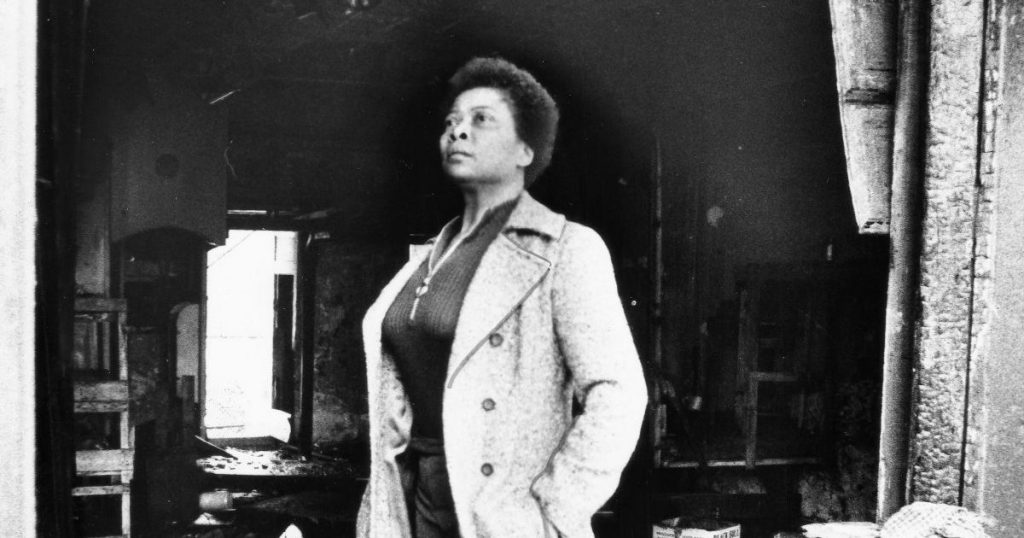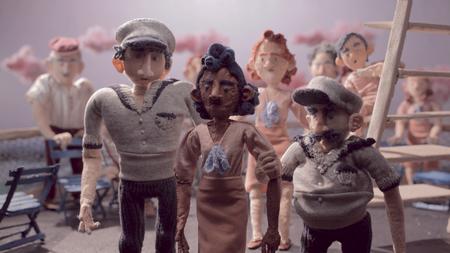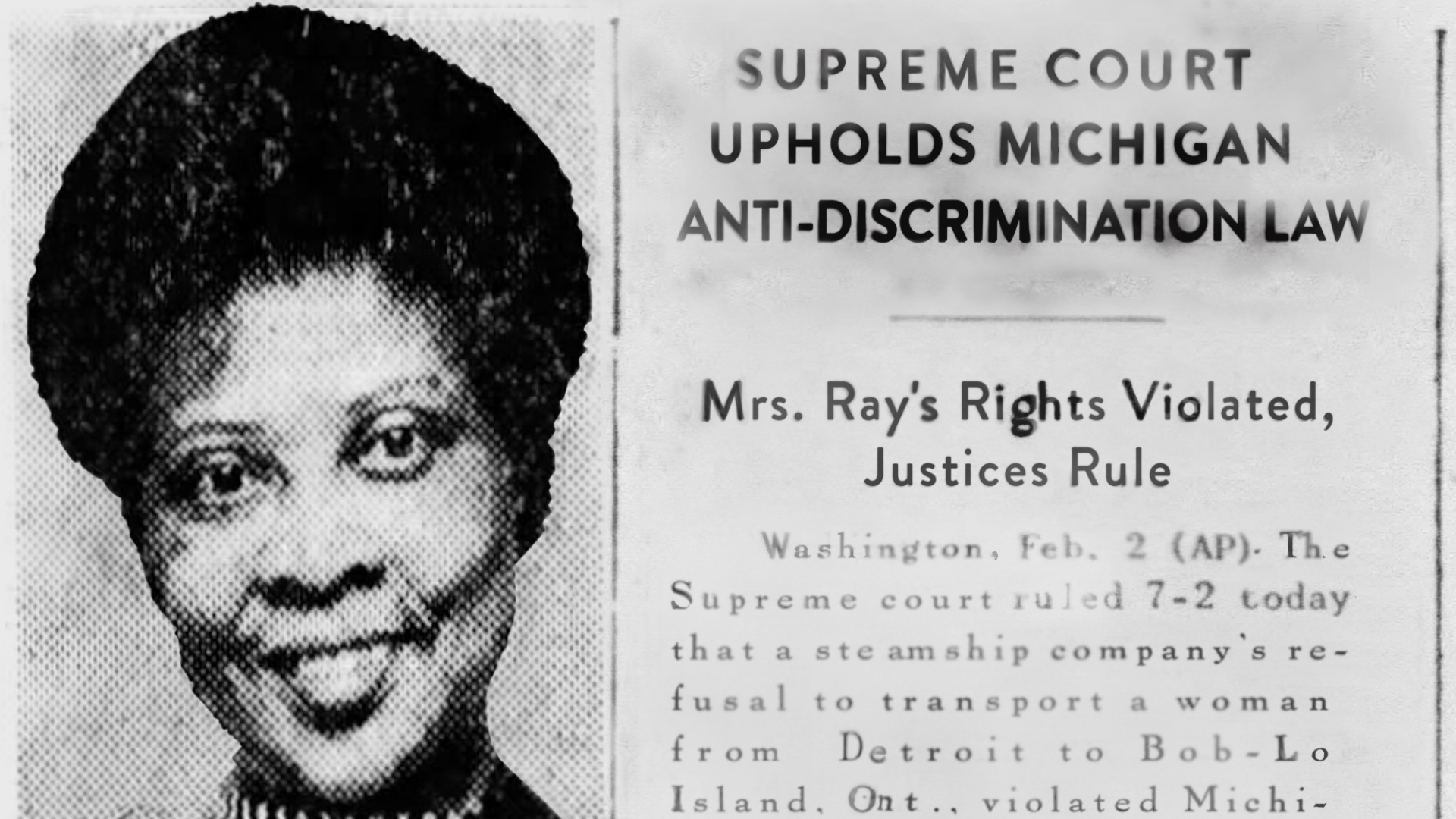Watch a Short Film On the Black Woman Who Integrated the Boblo Boats
A decade before Rosa Parks refused to get off a Montgomery bus, 24-year-old Sarah Elizabeth Ray fought racial discrimination in Detroit en route to a beloved Canadian amusement park.

Sarah E. Ray
On a summer day in 1945, Sarah Elizabeth Ray stood up for something because she wasn’t allowed to sit down.
The 24-year-old Black woman boarded the SS Columbia en route for Boblo Island — a Canadian amusement park beloved by Detroiters. Ray was there to celebrate her graduation from secretarial school with her classmates. Their teacher paid the 85-cent fare for the class.
She was “angry about how she was treated that day on the Boblo Boat. It’s fine that she opened doors for the race, but that was about her struggle to prove her self worth.”
Shortly after Ray took her place on the boat, things turned sour. Despite Michigan’s civil statute barring racial discrimination in public spaces since 1885, the manager of the Boblo Boat told her she had to leave.
Listen: Filmmaker Aaron Schillinger and writer Desiree Cooper talk about the legacy of Sarah Elizabeth Ray.

“She said no knowing that what she was doing was perfectly legal at that time. There were no laws prohibiting her from riding the boat,” says Aaron Schillinger, a Detroit filmmaker who discovered Ray’s story while working on a feature length documentary about the Boblo Boats.
“They forcibly removed her from the boat and returned her 85-cent fare,” says Schillinger.
Ray then threw the returned fare into the Detroit River and took her frustration to the NAACP to launch her fight toward racial justice and desegregation.
In the short film “Sarah Elizabeth Ray: The Other Rosa Parks,” Schillinger collaborated with journalist and activist Desiree Cooper to unpack this racially charged story.

Just months before Ray’s passing, she sat down for an interview with Cooper in 2006. At the time, Cooper worked as a columnist for the Detroit Free Press. She describes Ray as being generous and eager to tell her story.
“She was still very sharp and very clear,” says Cooper. “In my mind, [she was] still angry about how she was treated that day on the Boblo Boat. It’s fine that she opened doors for the race, but that was about her struggle to prove her self worth.”
Ray’s case was eventually represented in the United States Supreme Court by then-NAACP lawyer Thurgood Marshall and ultimately led to integrating the Boblo Island boats.
Schillinger used stop-motion animation to bring Ray’s story to life.
“When people watch, they’re going to see puppets made with recycled fabric in sets,” Schillinger describes. “I have in my apartment a 5-foot replica of the Boblo Boat Columbia, made out of cardboard. We really wanted to go with something that was handmade because we felt that [would be] a beautiful tribute to her.”
Watch: “Sarah Elizabeth Ray: Detroit’s Other Rosa Parks”
Trusted, accurate, up-to-date
WDET is here to keep you informed on essential information, news and resources related to COVID-19.
This is a stressful, insecure time for many. So it’s more important than ever for you, our listeners and readers, who are able to donate to keep supporting WDET’s mission. Please make a gift today.
